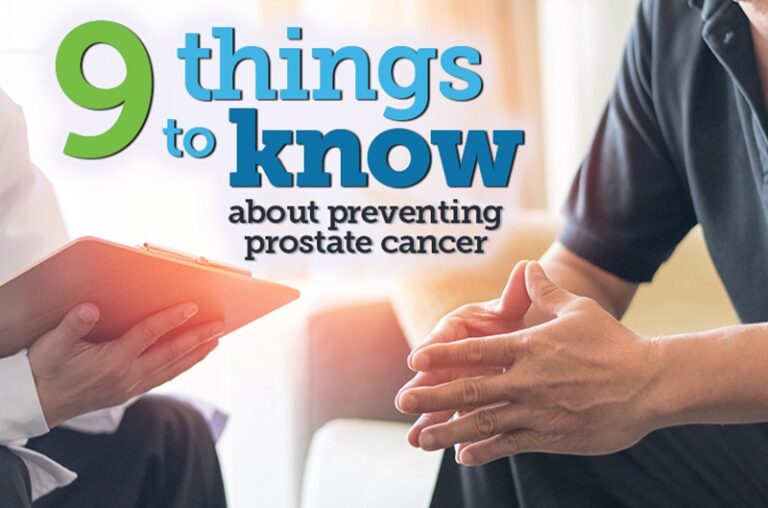How to Deal with Libido Changes as You Age and Keep the Passion Alive

Understanding the natural changes in libido with age

As we age, it is natural for our bodies to undergo various changes, including those related to our sexual health and libido. One such change that may occur is a decrease in sexual desire. It is important to understand that this decline in libido is a normal part of the aging process and is influenced by various factors.
One factor that can contribute to this decrease in libido is hormonal changes. As we get older, our hormone levels, particularly testosterone, tend to decline. Testosterone plays a crucial role in sexual desire and function. Therefore, a decrease in its levels can result in a decrease in libido. Additionally, other hormonal shifts, such as those associated with menopause in women, can also affect sexual desire.
Maintaining open and honest communication with your partner is vital when it comes to navigating the changes in libido that occur with age. It is crucial to have an open dialogue about any concerns or changes you may be experiencing in your sexual desire. This can help both partners understand and support each other through this transitional phase. Additionally, talking about desires, fantasies, and any changes you may be experiencing can help alleviate any pressure or anxiety related to sexual performance and intimacy.
Recognizing the impact of hormonal shifts on sexual desire

Hormonal shifts can have a significant impact on sexual desire in both men and women. As individuals age, their reproductive hormones naturally decline, which can lead to a decrease in libido. Testosterone, the primary hormone responsible for sexual desire in men, gradually decreases with age, leading to a decline in sexual desire and performance. Similarly, women experience changes in their hormones, particularly estrogen and progesterone, during menopause, which can also result in a reduced libido.
These hormonal changes can affect various aspects of sexual desire, including the frequency of sexual thoughts, arousal levels, and overall interest in sexual activity. It is important to recognize these shifts and understand that they are a normal part of the aging process. However, it is also essential to address any concerns or difficulties related to sexual desire with a healthcare provider, as there may be underlying medical conditions or lifestyle factors contributing to the decline in libido.
Maintaining open and honest communication with your partner

Open and honest communication plays a vital role in maintaining a healthy and fulfilling relationship, especially when it comes to discussing sexual desires and needs. It is important to create a safe and non-judgmental environment where both partners feel comfortable expressing their thoughts and concerns. By fostering open lines of communication, couples can better understand each other’s needs and work together towards a satisfying and passionate sexual relationship.
One way to enhance communication is through active listening. This involves not only hearing what your partner is saying but also making an effort to understand their perspective. Practice empathy and avoid interrupting or dismissing their thoughts and feelings. Encouraging your partner to openly share their desires and concerns, without fear of judgment or rejection, can lead to a deeper level of intimacy and understanding. Additionally, expressing your own desires and needs in a clear and respectful manner is essential for maintaining open communication.
Exploring the role of physical health in libido changes
The role of physical health in libido changes cannot be understated. Our overall well-being and vitality directly impact our sexual desire and performance. When we prioritize our physical health, we are taking important steps towards maintaining a vibrant and fulfilling sex life.
One key aspect of physical health that influences libido is our cardiovascular health. The circulatory system plays a crucial role in sexual arousal and performance. Good blood flow to the genital area enhances sensitivity and arousal, while poor circulation can lead to difficulties in achieving and maintaining an erection.
Maintaining a healthy weight is another critical factor for a robust libido. Excess weight can lead to hormonal imbalances, specifically an increase in estrogen levels in men, which can dampen sexual desire. Additionally, obesity is linked to various health conditions such as diabetes, heart disease, and high blood pressure, all of which can negatively impact sexual function.
By adopting a well-rounded approach to physical health, addressing cardiovascular health, weight management, and overall fitness, individuals can promote healthy libido levels. Regular exercise, a balanced diet, and appropriate sleep patterns all contribute to an optimal physical state for sexual wellness. Additionally, it is essential to consult with healthcare professionals to address any underlying health conditions or medications that may affect libido. Taking these steps can result in a healthier body and a more satisfying sexual experience.
Prioritizing emotional intimacy to cultivate a strong connection
One of the key elements in maintaining a healthy and fulfilling sexual relationship is prioritizing emotional intimacy. Emotional intimacy refers to the deep bond and connection that partners share on an emotional level. It involves open and honest communication, trust, and vulnerability. Cultivating emotional intimacy can significantly enhance sexual desire and satisfaction.
When partners prioritize emotional intimacy, they create a safe and supportive space where both individuals feel comfortable expressing their needs, desires, and concerns. This open communication allows couples to better understand and meet each other’s emotional and sexual needs. It also creates an environment where both partners feel valued, heard, and appreciated, fostering a sense of emotional closeness and connection. Prioritizing emotional intimacy can also help alleviate any anxieties or insecurities that may arise in the context of sexual intimacy, further enhancing overall satisfaction and enjoyment.
Certainly! Here’s information on prioritizing emotional intimacy to cultivate a strong connection presented in a table format:
| Prioritizing Emotional Intimacy for a Strong Connection | Key Strategies |
|---|---|
| Open and Vulnerable Communication | – Share personal thoughts, feelings, and experiences with openness and vulnerability. |
| – Create an atmosphere where both partners feel safe expressing their true selves. | |
| Active Listening and Empathy | – Practice active listening to fully understand your partner’s emotions and perspective. |
| – Show empathy by acknowledging and validating your partner’s feelings. | |
| Quality Time Together | – Prioritize quality time without distractions to strengthen the emotional bond. |
| – Engage in activities that foster connection and shared experiences. | |
| Expressing Appreciation and Gratitude | – Regularly express appreciation for your partner’s qualities, actions, and efforts. |
| – Share specific reasons why you are grateful for each other. | |
| Creating Rituals and Traditions | – Establish rituals or traditions that hold sentimental value for both partners. |
| – These can be daily habits or special occasions that strengthen the connection. | |
| Shared Goals and Aspirations | – Discuss and align on shared goals and aspirations for the present and future. |
| – Collaborate on plans and support each other’s individual ambitions. | |
| Emotional Support during Challenges | – Offer emotional support during challenging times, showing empathy and understanding. |
| – Encourage open dialogue about stressors and navigate difficulties together. | |
| Affectionate Touch and Physical Connection | – Incorporate affectionate touch to maintain a physical and emotional connection. |
| – Non-sexual physical intimacy, such as hugs and cuddling, contributes to closeness. | |
| Building Trust and Transparency | – Prioritize trust by being transparent and honest in your communication. |
| – Avoid secrecy and create an environment where trust can flourish. | |
| Celebrating Achievements and Milestones | – Acknowledge and celebrate individual and shared accomplishments. |
| – These celebrations reinforce a sense of partnership and mutual success. | |
| Understanding Love Languages | – Identify and understand each other’s love languages to better meet emotional needs. |
| – Adapt your expressions of love to align with your partner’s preferred language. | |
| Regular Check-Ins and Emotional Checkpoints | – Schedule regular check-ins to assess emotional well-being and relationship satisfaction. |
| – Use these check-ins to address any concerns and ensure ongoing emotional connection. | |
| Seeking Professional Guidance if Needed | – If challenges arise, consider seeking couples therapy or counseling for additional support. |
| – Professional guidance can offer tools and strategies for strengthening emotional intimacy. |
Incorporating stress-reducing techniques into your daily routine
Stress can have a significant impact on our overall well-being, including our sexual desire and performance. Incorporating stress-reducing techniques into your daily routine can help alleviate the effects of stress and promote a healthier and more satisfying sexual experience.
One effective technique is practicing mindfulness, which involves bringing your attention to the present moment and accepting it without judgment. Mindfulness can help reduce stress and anxiety, allowing you to fully engage in intimate moments with your partner. You can try incorporating mindfulness into your daily routine by practicing deep breathing exercises or engaging in meditation or yoga.
Another stress-reducing technique that can benefit both your mental and physical well-being is exercise. Regular physical activity has been shown to reduce stress levels and promote the release of endorphins, also known as the “feel-good” hormones. Engaging in activities such as jogging, swimming, or even dancing can help reduce stress, improve mood, and boost overall libido.
Incorporating stress-reducing techniques into your daily routine can have a positive impact on your sexual desire and performance. By practicing mindfulness and engaging in regular exercise, you can effectively manage stress and enhance your overall well-being. Remember, prioritizing self-care is essential for maintaining a fulfilling and passionate relationship.
Exploring the benefits of regular exercise for libido and overall well-being
Engaging in regular exercise not only benefits overall physical well-being, but it can also have a positive impact on libido. Various studies have shown a strong correlation between exercise and sexual desire in both men and women. One study published in the Journal of Sexual Medicine found that individuals who engaged in moderate-intensity exercise for at least 150 minutes per week reported higher levels of sexual desire compared to those who were less physically active.
The reason behind this connection may lie in the physiological changes that occur during exercise. When we engage in physical activity, our bodies release endorphins, commonly known as “feel-good” hormones. These endorphins not only boost mood but also stimulate sexual desire. Additionally, exercise enhances blood flow, including to the genital area, resulting in increased sensitivity and arousal. Regular exercise also improves cardiovascular health, which can positively impact sexual function and performance. So, incorporating exercise into your daily routine can be a simple yet effective way to boost libido and overall sexual satisfaction.
Nurturing a positive body image and self-confidence
Positive body image and self-confidence play crucial roles in maintaining a healthy and fulfilling sexual relationship. When individuals feel good about their bodies and are confident in their own skin, it can greatly enhance their overall sexual satisfaction and desire. However, it is important to remember that body image and self-confidence are multifaceted and can be influenced by various factors.
One way to nurture a positive body image is through self-acceptance and self-love. Recognizing that everybody is unique and embracing your own body’s characteristics can help improve body image. Engaging in self-care practices such as regular exercise, maintaining a balanced diet, and getting adequate rest can also contribute to a positive body image. Additionally, surrounding yourself with a supportive and uplifting social circle can further boost self-confidence.
It is worth noting that body image issues and self-confidence concerns can sometimes be more complex and require professional help. If you find that negative thoughts about your body persist or significantly impact your well-being, seeking guidance from a therapist or counselor trained in body image and self-esteem issues can be helpful. They can provide you with tailored strategies and techniques to improve body image and enhance self-confidence, ultimately benefiting your overall sexual well-being.
Seeking professional help and guidance when needed
In some cases, individuals may find that their libido changes persist despite trying various self-help strategies. This can be a frustrating and challenging experience, but it is important to remember that seeking professional help and guidance can provide valuable insights and support. A healthcare professional, such as a gynecologist, urologist, or endocrinologist, can conduct a thorough evaluation and help identify any underlying medical conditions or hormonal imbalances that may be contributing to changes in libido.
Additionally, a mental health professional, such as a psychologist or sex therapist, can provide guidance in addressing any psychological or emotional factors that may be impacting sexual desire. They can assist with exploring relationship dynamics, communication issues, or past trauma that may be affecting libido. These professionals are trained to provide a safe and non-judgmental space for individuals and couples to discuss their concerns, and can offer tailored strategies and interventions to improve sexual satisfaction and overall well-being. It is important to remember that seeking professional help is not a sign of weakness or failure, but rather a proactive step towards finding solutions and regaining sexual satisfaction.
Exploring different types of intimacy beyond sexual activity
Intimacy goes beyond sexual activity and encompasses various forms of connection and bonding within a relationship. Exploring different types of intimacy can enhance overall satisfaction and strengthen the emotional bond between partners.
One form of intimacy that often gets overlooked is emotional intimacy. This type of intimacy involves sharing thoughts, feelings, desires, and fears with your partner. It is about being vulnerable, empathetic, and supportive of each other. Emotional intimacy deepens trust and helps build a strong foundation for a fulfilling relationship. Taking the time to truly listen, validate, and understand your partner’s emotions can foster a sense of closeness and security.
Another valuable form of intimacy is intellectual intimacy. Engaging in stimulating conversations, exchanging ideas, and sharing common interests can create a deeper connection between partners. This can be done by exploring new hobbies or activities together, joining a book club, or attending lectures or workshops. Intellectual intimacy can enhance communication, foster mutual respect, and ignite a sense of curiosity and growth within the relationship.
In conclusion, exploring different types of intimacy beyond sexual activity can enrich your relationship and cultivate a deeper connection with your partner. Emotional and intellectual intimacy, along with other forms such as spiritual, recreational, and creative intimacy, contribute to a well-rounded and satisfying partnership. By nurturing these various aspects of intimacy, couples can continue to grow together and maintain a fulfilling and passionate relationship.
• Emotional intimacy involves sharing thoughts, feelings, desires, and fears with your partner.
• It deepens trust and builds a strong foundation for a fulfilling relationship.
• Taking the time to truly listen, validate, and understand your partner’s emotions fosters closeness and security.
• Intellectual intimacy is created through stimulating conversations, exchanging ideas, and sharing common interests.
• Engaging in new hobbies or activities together can enhance this form of intimacy.
• Intellectual intimacy enhances communication, mutual respect, curiosity, and growth within the relationship.
• Other forms of intimacy include spiritual, recreational, and creative intimacy.
• Spiritual intimacy involves connecting on a deeper level through shared beliefs or practices.
• Recreational intimacy is built by engaging in enjoyable activities together that create shared experiences.
• Creative intimacy involves exploring artistic endeavors or expressing oneself creatively as a couple.
By nurturing these various aspects of intimacy beyond sexual activity,
couples can experience a well-rounded and satisfying partnership.
Experimenting with new activities and experiences to keep the passion alive
Engaging in new activities and experiences can be an exciting way to maintain passion and spice up your intimate relationship. Research suggests that trying new things together can increase feelings of novelty, which in turn can enhance desire and overall satisfaction in the bedroom.
One study published in the Journal of Personality and Social Psychology found that couples who engaged in novel and arousing activities together reported higher levels of relationship satisfaction and sexual desire. This could range from taking a dance class together, trying out a new hobby, or even exploring new locations for romantic getaways.
The key is to step outside of your comfort zone and challenge yourselves to try something different. Not only does this allow for the opportunity to discover new interests and passions as a couple, but it also stimulates the release of dopamine, a neurotransmitter associated with pleasure and desire. So, don’t be afraid to explore uncharted territories and embrace new experiences to keep the passion alive and ignite the flames of desire in your relationship.
Understanding the impact of medications on libido and exploring alternative options
Medications play a significant role in our overall health and well-being, but it’s important to recognize their potential impact on libido. Certain medications, including antidepressants, hormone-based contraceptives, and blood pressure medications, have been known to affect sexual desire and function. Antidepressants, in particular, are associated with decreased libido and difficulties achieving orgasm. It’s crucial to understand that everyone’s response to medication can vary, and while some individuals may experience changes in libido, others may not be affected at all. If you have concerns about how medications are affecting your sexual desire, it is imperative to have a conversation with your healthcare provider. They can provide insights into potential alternative options that may have a lesser impact on your libido while still effectively managing your health conditions.
Exploring alternative options to manage specific health conditions while minimizing the impact on libido is crucial for overall wellness. For instance, if you are experiencing sexual side effects from antidepressants, your healthcare provider may suggest a switch to a different antidepressant that has a lower likelihood of impacting libido. In some cases, combining medication with other therapeutic interventions, such as counseling or psychotherapy, may help address both the underlying health condition and the impact on sexual desire. Additionally, alternative treatments like herbal supplements, acupuncture, and lifestyle changes, such as stress reduction techniques and incorporating exercise into your routine, may also be worth exploring. It is vital to have an open and honest conversation with your healthcare provider to determine the best path forward and find a solution that aligns with your individual needs and goals.
Considering the role of lifestyle factors, such as diet and sleep, on sexual desire
Diet and sleep play a crucial role in maintaining overall health and well-being, and they can also have a significant impact on sexual desire. When it comes to diet, certain foods have been known to enhance libido while others may dampen it. For example, foods rich in antioxidants, such as berries, dark chocolate, and green leafy vegetables, can help improve blood flow, enhance sexual arousal, and boost libido. On the other hand, a diet high in processed foods, saturated fats, and sugary drinks can negatively affect sexual desire by contributing to weight gain, hormonal imbalances, and decreased energy levels.
Sleep, too, plays a vital role in maintaining a healthy sex drive. Chronic sleep deprivation can disrupt hormonal balance, leading to decreased libido and sexual dysfunction. It is recommended to prioritize a good night’s sleep by practicing good sleep hygiene, such as establishing a regular sleep schedule, creating a conducive sleep environment, and avoiding stimulants like caffeine and electronic devices before bedtime. Adequate sleep not only helps increase energy levels but also promotes hormone production and regulation, which can positively influence sexual desire.
Embracing the changes and finding new ways to enjoy a fulfilling and passionate relationship.
To embrace the changes that come with age and cultivate a fulfilling and passionate relationship, it is important to acknowledge and honor the natural shifts in libido. Libido, or sexual desire, can vary greatly among individuals and may change over time due to factors such as hormonal fluctuations, physical health, and lifestyle choices.
One way to navigate these changes is by maintaining open and honest communication with your partner. Discussing your desires, concerns, and expectations can foster a deeper understanding and create an environment of trust and mutual support. It is crucial to remember that open communication is a continual process and should be approached with empathy, respect, and active listening.
Additionally, prioritizing emotional intimacy can play a pivotal role in cultivating a strong connection. Emotional intimacy involves sharing and connecting on a deeper level, beyond the physical realm. This can be achieved through acts of kindness, quality time spent together, and cultivating shared interests. By nurturing emotional intimacy, you can establish a solid foundation for a passionate and fulfilling relationship.
Embracing the changes that come with age and finding new ways to enjoy a fulfilling and passionate relationship requires a proactive approach. By understanding the impact of various factors on libido and actively seeking ways to address them, you can navigate these changes with grace and create a fulfilling and intimate relationship.
What are some natural changes in libido that occur with age?
As we age, it is common to experience a decrease in libido due to hormonal changes and other factors. This can be influenced by factors such as menopause in women and a decrease in testosterone levels in men.
How do hormonal shifts impact sexual desire?
Hormonal shifts, such as those that occur during menopause or andropause, can lead to a decrease in sexual desire. Estrogen and testosterone levels can influence libido, and hormonal imbalances can affect sexual function and desire.
How important is open and honest communication with your partner in maintaining a passionate relationship?
Open and honest communication is crucial in maintaining a passionate relationship. It allows both partners to express their needs, desires, and concerns, and creates a foundation for understanding and support.
How does physical health play a role in libido changes?
Physical health, including factors like cardiovascular health, weight management, and overall fitness, can impact libido. Taking care of your physical health can help support sexual function and desire.
Why is emotional intimacy important for cultivating a strong connection?
Emotional intimacy is essential for building a strong connection with your partner. It involves deep emotional bonding, trust, and understanding, which can enhance sexual satisfaction and desire.
How can stress-reducing techniques benefit libido and overall well-being?
Stress can negatively affect libido, so incorporating stress-reducing techniques like meditation, mindfulness, or relaxation exercises can help improve sexual desire and overall well-being.
What are the benefits of regular exercise for libido and overall well-being?
Regular exercise can boost libido by improving blood circulation, increasing energy levels, reducing stress, and promoting overall well-being. It also helps maintain a healthy weight and supports cardiovascular health.
How can nurturing a positive body image and self-confidence impact libido?
Nurturing a positive body image and self-confidence can positively influence libido by increasing self-esteem, reducing body insecurities, and promoting a healthy mindset towards sexuality.
When should someone seek professional help and guidance regarding changes in libido?
If changes in libido are causing distress or negatively impacting your relationship, it may be beneficial to seek professional help and guidance. A healthcare provider or therapist can provide support, advice, and potential treatment options.
What are some different types of intimacy beyond sexual activity?
Beyond sexual activity, intimacy can encompass emotional intimacy, intellectual intimacy, spiritual intimacy, and experiential intimacy. These types of intimacy can deepen the connection between partners and enhance overall relationship satisfaction.
How can experimenting with new activities and experiences help keep the passion alive in a relationship?
Trying new activities and experiences together can help keep the passion alive in a relationship by introducing novelty, creating shared memories, and fostering a sense of adventure and excitement.
How do medications impact libido, and what alternative options are available?
Some medications can affect libido as a side effect. If you suspect a medication is impacting your sexual desire, it is important to consult with your healthcare provider to explore alternative options or potential solutions.
What role do lifestyle factors like diet and sleep play in sexual desire?
Lifestyle factors like diet and sleep can influence sexual desire. A balanced diet that includes nutrients important for sexual health and getting enough restful sleep can enhance libido and overall sexual well-being.
How can one embrace the changes in libido and find new ways to enjoy a fulfilling and passionate relationship?
Embracing the changes in libido involves accepting that it is a natural part of life and being open to exploring new ways to enjoy a fulfilling and passionate relationship. This can include communication, prioritizing emotional intimacy, trying new activities, seeking professional help when needed, and taking care of physical and mental well-being.






